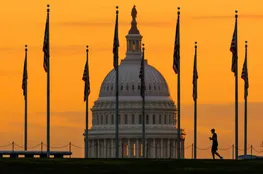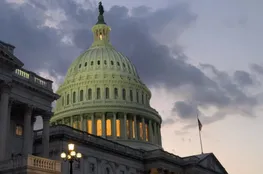In a recent development, former President Donald Trump has proposed a substantial increase in import tariffs, sparking widespread concern among economists. Nobel laureate Paul Krugman criticized this proposal in a New York Times column, warning that such high tariffs could set the economy back nearly a century, evoking the economic landscape of the 1930s. Trump's suggestion includes imposing a 20 percent general tariff and a notably hefty 60 percent tariff on imports from China. Economists, including Krugman, argue that these tariffs could significantly damage the economy. They warn that imposing such high barriers would not achieve the intended goals of reducing the U.S. trade deficit or rejuvenating domestic manufacturing.
Instead, Krugman opined that Trump's attraction to tariffs stems from his view of economics as a zero-sum game, characterized by winners, losers, and punishment. This perspective, Krugman suggests, might not effectively address the economic challenges Trump aims to tackle. If implemented, Trump’s tariff plan could mirror the Smoot-Hawley Tariff Act era, raising overall tariffs to levels that haven't been seen in decades. Such an increase could result in a 3 to 4 percent rise in living costs, disproportionately burdening middle- and lower-income families. Critics from the economic community agree that rather than fostering American manufacturing or closing the trade gap, the tariffs might shrink the economy, lessen export efficiency, and make the domestic market less competitive.
Krugman further cautioned against potential global repercussions, noting the possibility of increased global poverty and conflict. He highlighted that higher tariffs would likely decrease the volume of American exports, which are predominantly goods the U.S. excels in producing, while suboptimally increasing the production of less competitive domestic products. This shift, according to Krugman, would render the economy less efficient. The debate over Trump's tariff strategy continues to resonate among economists and business magnates. Notable figures like economist Peter Schiff and billionaire Mark Cuban have criticized Trump's methodology and skepticism about the tariffs’ potential benefits for U.S. manufacturing. They argue that Trump's approach may overlook essential components necessary to effectively achieve his economic goals.
Despite the criticism, Trump maintains that tariffs have a substantial impact, as he defended his strategy at the Economic Club of Chicago. As this proposal stirs ongoing discussion, its potential repercussions on both domestic and global economies remain a pivotal focus for policymakers and the financial sector alike.
























